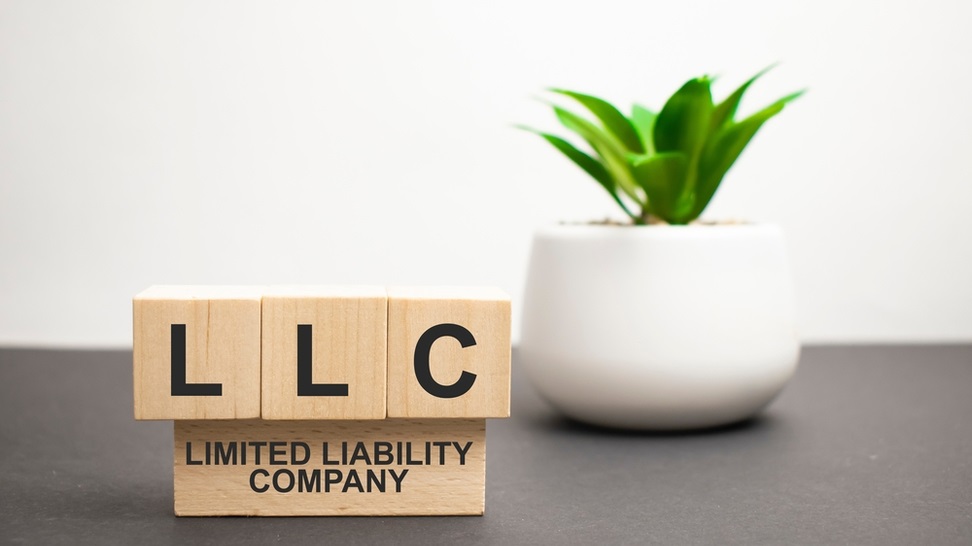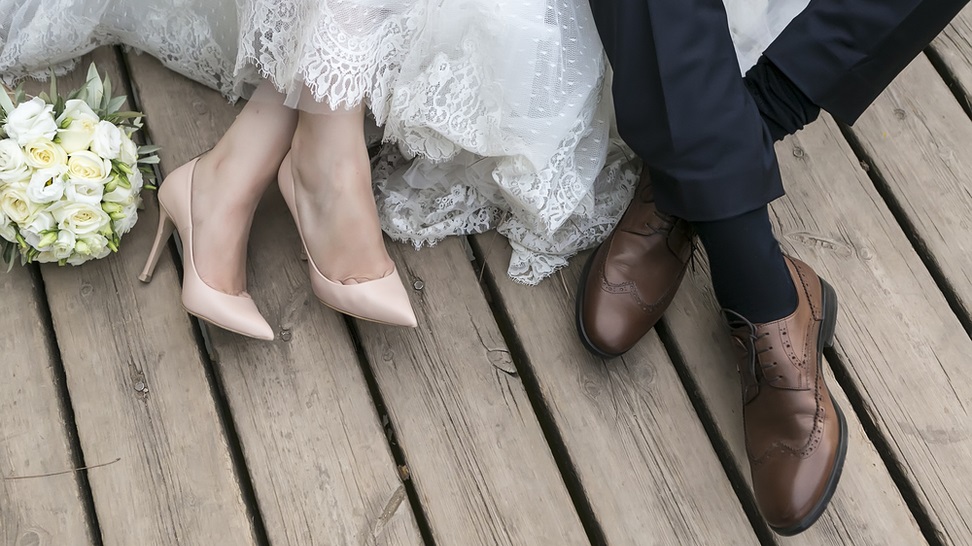If you’re like many business owners, you probably need to know how to protect assets from lawsuits. Lawsuits can cost time and money, and many small business owners may never recover from one claim. If you haven’t taken steps to protect yourself, both your business and personal property (including bank accounts and cryptocurrency) could be on the hook.
The first step in how to protect assets from lawsuits is to have a solid asset protection plan. Bear in mind that the more asset-rich you appear, the more unscrupulous individuals and their attorneys may target you. Even if you settle a claim just to “make it go away,” you could still lose money or be more vulnerable to the next attack.
If you don’t know how to protect assets from lawsuits or other forfeiture, understanding your legal options will help you make the right decisions for your goals.
Both legal and practical steps are important, but to ensure that you’re compliant with local, state, and federal regulations for each of these protections, you need the help of an experienced asset protection attorney.
Why Do You Need Protection?
Hopefully, you’re able to operate your business without worrying about whether a customer, employee, or vendor would file a lawsuit against you. However, that’s not reality for many business owners.
If you lose a lawsuit, or even if you are partly to blame, you could suffer a serious financial blow.
Perhaps a creditor files a lawsuit to recoup money owed by you or the business. If you don’t know how to protect assets from lawsuits, you could lose your home, your cars, your cryptocurrency, and even the money in your checking or savings accounts. Knowing why you need protection can help you better understand how to protect assets from lawsuits.
Lawsuits are also expensive to defend. You’ll need to pay for attorney’s fees and spend time and energy defending yourself — time that could and should be spent on growing your business. The key to proper asset protection is to set it up before you need it.
What Are Different Ways to Protect Your Assets from Litigation?
There are several ways you can protect your assets, but to ensure that you’ll be safe from being personally liable in a lawsuit, you should consult an attorney who specializes in asset protection.
Common forms of asset protection include:
- Business insurance, such as an “umbrella policy” or a malpractice policy
- Forming limited liability companies (LLCs)
- Establishing an asset protection trust
- Contributing to retirement plans such as a 401(k) or IRA
- Homestead exemptions
Your asset protection attorney can help you understand which options will work best for your business and assets.
Using Asset Protection Trusts
Asset Protection Trusts are a form of trust specifically used to protect assets from lawsuits, creditors, or any other judgments against your estate and property.
In some cases, an Asset Protection Trust can even mitigate litigation, possibly deterring it before it begins or influencing the outcome in your favor.
Asset Protection Trusts allow you to protect the wealth you’ve accumulated from any future creditors, allowing you to pass your property to your beneficiaries after you die.
Asset protection trusts can hold cash, real estate and business properties, LLCs, and stock, and cryptocurrency. You may want to hold real estate or other business properties in an Asset Protection Trust but choose different ways to protect your cash or stock options, so you can invest or use it for your business.
What Kinds of Insurance Protect Your Assets?
Some forms of insurance can help mitigate your personal losses in a business lawsuit. Many business owners have liability policies for their company as well as workman’s compensation insurance for any employee accident or injury.
Ideally, these policies should shield your business against having assets seized in a lawsuit, although if the award is higher than your policy limit, you’ll likely have to pay the difference.
There are three types of policies that can help you when you’re considering how to protect assets from lawsuits.
Umbrella Policies
This creative name refers to this policy’s ability to cover unusual situations and shield you in case of a certain types of litigation. Umbrella policies are designed for specific instances where you need more coverage or an extension of another policy.
For example, you may have a homeowners and auto insurance policy but may have been involved in a particularly bad car accident. The judge or jury decides that you owe $1 million in total damages, but your car insurance policy covers $400,000 of the settlement. An umbrella policy may cover the remaining $600,000, protecting your personal assets.
Just like carrying an umbrella for a rainy day, this policy can protect you against a significant judgment.
Medical or Professional Malpractice Policy
Most people think of medical malpractice when they think of malpractice insurance, but other professions have malpractice insurance as well. For a doctor or other specialty care provider, a malpractice insurance policy can help cover what their employer’s malpractice policy doesn’t.
Lawyers also benefit from malpractice insurance. If your client isn’t satisfied with the way you advocated for them or alleges that you didn’t represent them to the best of your abilities, you may be sued. For a legal professional, being sued by a client may be galling, but malpractice insurance can help protect your practice and personal assets.
Life Insurance
Nearly all life insurance policies are exempt from seizure from creditors or other parties who receive a court judgment. Annuities, a type of life insurance intended to provide steady income in retirement, are also protected from many judgments from creditors.
However, the cash value and the value of the payout on death may be either partly protected or fully protected, depending on your state.
How an LLC Protects Your Personal Assets in a Lawsuit
An LLC, or Limited Liability Company, can help protect you both professionally and personally. First, the LLC keeps your personal assets separate from your business ones. Creditors who pursue a debt against your LLC generally cannot go after your personal assets, and your personal assets may not be attached in the lawsuit.
If you co-own a business, having an LLC instead of a general partnership can protect you from any liability another partner is exposed to.
For example, if your partner in a general partnership causes liability, you’re held responsible, too. However, the structure of an LLC protects you from both the financial and legal repercussions of other members of the LLC.
The asset protection of an LLC also works in the opposite manner. If you’re personally sued — let’s say your dog bit a neighbor, and the neighbor is suing you — then the lawsuit in some cases cannot include seizure of assets owned by the LLC.
Finally, an LLC offers you more control over your business. The structure of an LLC protects you from unwanted individuals, such as a judgment creditor, participating in or taking over your business activities.
LLCs and Judgement Creditors
Judgment creditors are individuals who have won a lawsuit against you and are therefore entitled to payment. However, if they win a lawsuit against the LLC, they’re only allowed to access the assets owned by the LLC. Knowing more about how an LLC operates helps business owners know how to protect assets from lawsuits.
Many LLC owners keep just enough assets in the LLC to ensure that it’s fiscally sound and able to cover its debts. Therefore, some creditors will file a suit against the LLC in hopes of penetrating its protections and gaining access to the owner or owners’ personal or other assets.
Having a seasoned professional establish your LLC can help protect you from predatory lawsuits. The LLC is a barrier between the business assets and your personal or familial ones. It also protects your business from having an unwanted individual as part of your business operations.
If you established a corporation instead of an LLC, then a creditor who wins a judgment against the corporation may be entitled to a seat on your board and ownership of a portion of the corporation’s stock. After assuming ownership of the shares of the debtor-partner, the creditor would become a partial owner of the corporation.
Other stockholders have few options in these cases. Aggressive creditors may have greater power in the operations of the company. However, the rules of the LLC allow creditors only the distributions from the LLC and not the debtor’s ownership rights or controlling interest in the LLC.
An LLC provides peace of mind for all members because they know that the debts or actions of another member of the LLC will not force the business into insolvency or uncomfortable positions.
An LLC offers protection for your personal assets and can help members protect themselves against the consequences of poor judgment or debt from other members of the LLC, but operating a business as a corporation has its own unique set of protections too.
Can Retirement Accounts Protect My Assets in a Lawsuit?
Protecting yourself against excessive seizure of assets includes protecting your retirement investments.
People who have spent years or even decades building up their retirement savings may see them wiped out in a lawsuit. However, individual retirement accounts (IRAs), 401(k)s, and other types of retirement investments can help prevent the loss of assets.
Federal laws gives some protection to employer-sponsored retirement accounts and 401(k)s. However, state regulations get a little trickier on whether IRAs can be included in a lawsuit. For example, taxes owed or past-due child support aren’t covered under IRA protections. Likewise, if the IRS is the creditor, your retirement investments may be seized as an asset to settle the tax debt.
If you’re being used by a private creditor or for an unpaid debt, your retirement accounts are usually protected under the Employee Retirement Income Security Act (ERISA), which protects 401(k) accounts.
Taking out an umbrella insurance policy or sufficient malpractice insurance can help protect your retirement accounts from seizure in case of a lawsuit.
Can Homestead Exemptions Protect My Assets?
A homestead exemption is a legal provision that protects one spouse in the event of the death or bankruptcy of the other one. It reduces the property tax burden for the other spouse and shields the home from creditors.
This arrangement is especially beneficial, as it provides both financial protection and physical shelter. Homestead exemptions prevent the forced sale of a primary residence to settle a debt. However, they do not prevent the bank from foreclosing on a house if the homeowner defaults on the loan.
Homestead exemptions vary widely from state to state. Florida and Texas offer the greatest protection for homeowners or their surviving spouses.
How much protection the homestead exemption can give you depends largely on where you live and when you took possession of the house. Still, it’s an asset protection feature that may ensure you have a place to live should you receive a judgment against you.
If Someone Sues You, Can They Take Your House?
If someone sues you and wins a judgment, they might be able to take your house, but only the equity that is not protected by your state’s homestead exemption. These laws are designed to protect a portion of the equity in your primary residence from creditors.
For example, in Florida, the homestead exemption is very generous, allowing homeowners to protect 100% of their home’s equity from most creditors. This means that even if you lose a lawsuit, your home cannot be sold to satisfy the judgment, as long as it is your primary residence and you follow the proper steps to claim the exemption.
However, in states with lower homestead exemptions, such as New Jersey where the exemption is only $10,000, your home may be more exposed. If you have more than $10,000 in equity, creditors could potentially force a sale to satisfy a judgment after applying the exemption.
To illustrate, let’s say you live in New Jersey, and your home is worth $200,000 with a $150,000 mortgage, giving you $50,000 in equity. If you lose a lawsuit and the judgment is for $60,000, creditors could potentially claim the $50,000 equity in your home (minus the $10,000 exemption), leaving you with $40,000 still owed, but they would have to sell your home to get that money.
On the other hand, if you lived in Florida with the same scenario, your home would be fully protected, and creditors could not touch it.
It’s important to note that homestead exemptions do not protect against all types of debts, such as federal tax liens, child support, or home equity loans.
Therefore, understanding your state’s homestead exemption laws is crucial for protecting your home from potential lawsuits.
Homestead Exemption Examples by State
| State | Homestead Exemption Amount | Notes |
| Florida | Unlimited | Protects entire home equity if primary residence. |
| Texas | Unlimited | Similar to Florida, with specific residency requirements. |
| New Jersey | $10,000 | Limited protection; excess equity vulnerable to creditors. |
| California | Up to $600,000 | Varies by county and homeowner status (e.g., age, income). |
Operating Your Businesses as Corporations
Like an LLC, a corporation (incorporating your business) protects your personal assets against a business lawsuit. If the company is sued, the personal assets of the owners are shielded from business liability.
However, simply incorporating your business may not give you the protection you need. The right wording needs to be used for the articles of incorporation, and you need to incorporate it in the right location (state or country) for maximum protection, regardless of where you actually operate.
Different states have different levels of protection for corporations. Delaware, for example, has some of the highest degrees of protection.
Once you’ve incorporated your business, you also need to ensure that your bylaws are drafted properly to protect you and that you complete the initial and annual minutes correctly. You’ll also need to complete stock certificates for the business owners.
While both corporations and LLCs offer the highest levels of protection for business owners, an LLC tends to provide more protection for small businesses than incorporating does.
Using Alternate Dispute Resolution to Reduce Your Litigation Liability
Another option if you or your business has been sued is to try to avoid going to court, if possible.
You may be able to work with the other party through arbitration or mediation, both of which carry fewer costs than a court trial. Additionally, you may have a greater degree of control over the negotiations and be able to participate more actively in resolving the dispute.
Many employers may have arbitration written into their by-laws or company policies to settle employee-employer disputes. They may set arbitration, rather than a lawsuit, as a condition of employment.
This condition can help businesses reduce their chances of being sued. Even if the arbitration is resolved in favor of the employee, the company’s loss may be less than what a judge or jury would award in a lawsuit.
While mediation and arbitration aren’t direct asset protection, they can help shield personal assets from a business dispute. Depending on the structure of your mandatory arbitration agreement with employees, for example, you may establish that a business owner’s personal assets may not be included as part of a settlement.
Prenuptial and Postnuptial Agreements
Another type of asset protection is considering the possibility of divorce and its implication on your assets. Prenuptial agreements can protect assets you had prior to marriage in case of divorce. They can also help avoid costly, contentious, and hostile litigation when dissolving a marriage.
Prenuptial agreements can provide for and protect children from a previous marriage, ensuring they’ll receive an inheritance. They can also protect your business from being seized as part of a divorce settlement or exclude certain gifts from being considered marital property and therefore subject to liquidation and division in divorce.
Creating an Effective Asset Protection Plan
Protecting your assets isn’t exclusive to safeguarding a business from personal suits or vice versa. Asset protection can also ensure that everything you’ve worked for will pass on to your heirs or will be protected in case of divorce.
It’s important to start your asset protection plan before there are creditors knocking at your door. For example, fraudulent conveyance laws exist to protect the rights of current and future creditors. You can’t start making changes to your assets and employing asset protection strategies when there’s a current creditor or lawsuit that’s been filed.
Working with an attorney who understands both federal and state laws for asset protection can ensure your protections are completed properly and your assets are divided in such a way as to allow you both the protection and degree of control you need.
Components of an Asset Protection Plan
Most asset protection plans build different layers of protection and incorporate different strategies, including:
- Risk management through smart insurance policies
- Estate planning
- Advance transfer strategies
- Protection assets in case of divorce
Insurance can help ensure that you have enough coverage to settle any personal and business lawsuits. Umbrella policies and other types of insurance can help bridge the gap in coverage, supplementing your business insurance and personal liability policy.
Estate planning is critical, not only to ensure that most of your estate is protected against taxes or that your heirs receive what you wish but also to protect yourself in the event you cannot self-advocate.
Advance planning can create a trust to pay for long-term care, for example, or appoint a personal representative to make financial or health care decisions on your behalf.
Hire the Right Attorney to Learn How to Protect Assets from Lawsuits
At Blake Harris Law, we can advise you on how to protect yourself and your assets from a lawsuit. If you’re a business owner, having the right forms of asset protection is vital to protecting yourself and your personal assets in a lawsuit.
Every financial situation is different, and we tailor our advice to each client’s unique needs. Contact us online, and an experienced asset protection lawyer can show you how to protect assets from lawsuits.





